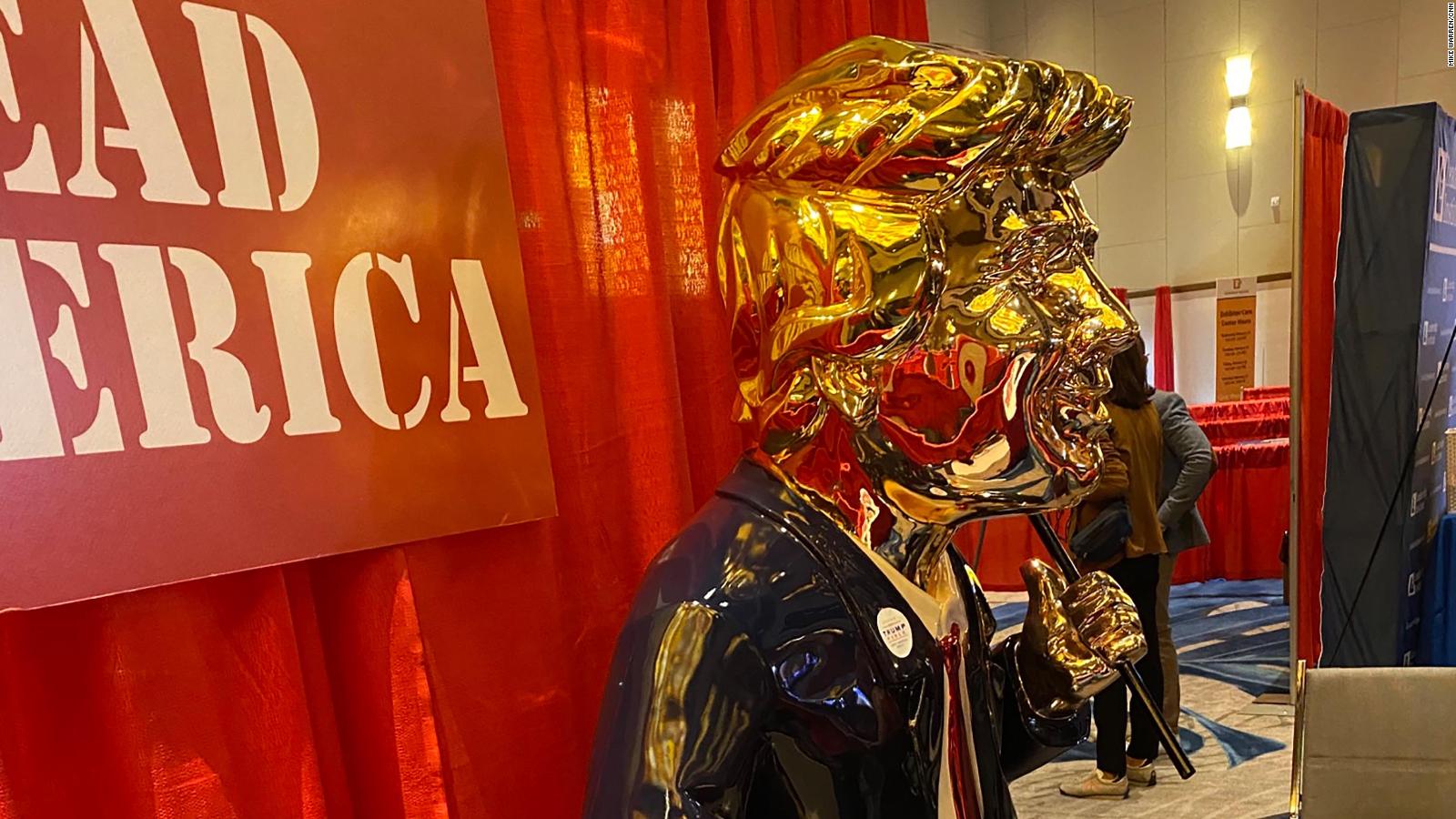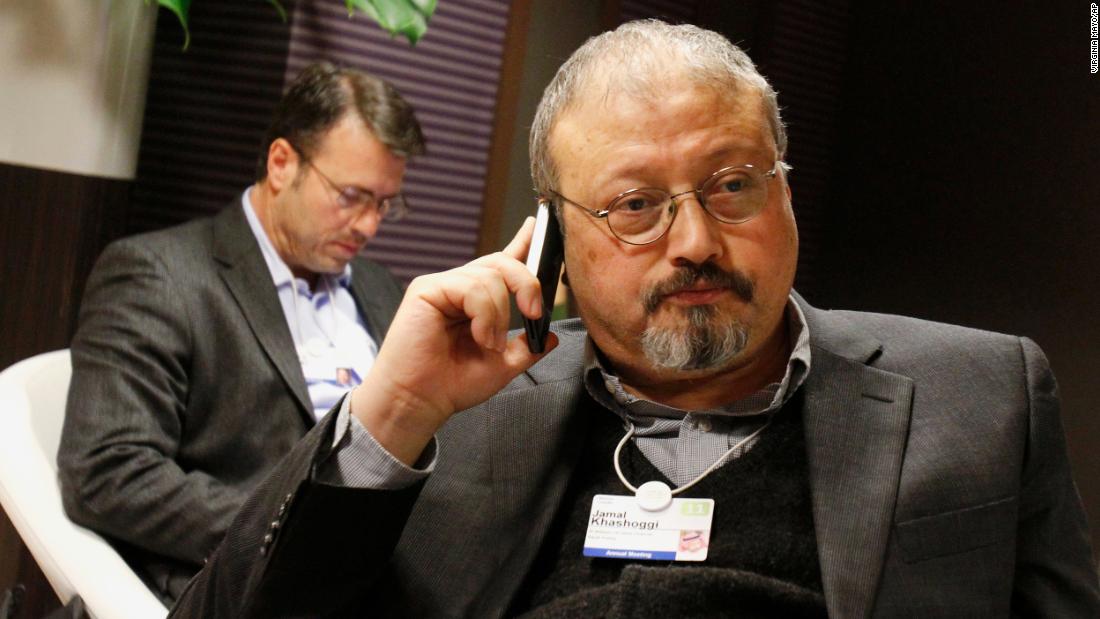A Turkish intelligence audio recording captured the moments inside the
Saudi consulate in Istanbul that Saudi government agents drugged, suffocated and dismembered the 59-year-old Washington Post columnist.
In the 879 days since, the only geopolitical question of consequence is what role Saudi Arabia's Crown Prince Mohammed bin Salman, known by his initials MBS, played in his death.
Two years ago, the CIA concluded with a high degree of confidence that MBS personally ordered the killing but gave no more detail.
The Crown Prince has denied that he ordered Khashoggi's murder but has said that he bears responsibility. "This was a heinous crime," he said in an interview with CBS in 2019. "But I take full responsibility as a leader in Saudi Arabia, especially since it was committed by individuals working for the Saudi government."
Trump dismissed the CIA assessment and defended MBS. During his administration, US intelligence officials never spoke publicly or presented evidence about the murder. He even boasted that he saved MBS's "ass" to biographer Bob Woodward, who writes in his book "Rage" that Trump also boasted that "I was able to get Congress to leave him alone. I was able to get them to stop."
However, his successor, Joe Biden, has no love of MBS. On the campaign trail
he said senior Saudi leaders should be made "the pariah that they are."
The drum roll to the apparent denouement of the saga has been building since Biden was declared America's 46th president. So, on Friday, in keeping with his "recalibration" of relations with Saudi and upholding US law, expectations of MBS's comeuppance were high as Biden's director of national intelligence published the long-awaited report.
Report upsets Saudis
Its authors "assess" that MBS "approved an operation in Istanbul, Turkey to capture or kill" Khashoggi, but the report does not offer a smoking gun revealing irrefutable evidence of the Kingdom's de-facto day-to-day ruler's precise malfeasance.
But the circumstantial evidence presented by the Office of the Director of National Intelligence's report is profound.
MBS's "control of decision-making in the Kingdom," his "absolute control" over the Kingdom's intelligence and security operations, the "direct involvement of a key adviser and members of bin Salman's protective detail in the operation, and the Crown Prince's support for using violent measures to silence dissidents abroad, including Khashoggi" make it "highly unlikely" it could have gone ahead without his "authorization," and contribute to the authors' conclusion of his guilt.
And this is upsetting the Saudis. The Foreign Ministry released a terse statement, saying: "It is truly unfortunate that this report, with its unjustified and inaccurate conclusions, is issued while the Kingdom had clearly denounced this heinous crime."
They are particularly aggrieved that allegations target the Crown Prince. The Saudi narrative holds it was his subordinates who messed up and misinformed each other. In their words, "This was an abhorrent crime and a flagrant violation of the Kingdom's laws and values. This crime was committed by a group of individuals that have transgressed all pertinent regulations and authorities of the agencies where they were employed."
In December 2019, Saudi authorities said they investigated 11 suspects in Khashoggi's murder. In a closed-door trial eight were found guilty, of whom five were sentenced to death. Ultimately, they were all given jail time.
The highest profile defendants however -- two of them close confidants of MBS -- had their charges dismissed, none of which aligns with the new intelligence report that also blames those closest to the Crown Prince.
If Biden thought he could get through his recalibration without a small rupture, he may have to reassess. Not only is the tone of Riyadh's fury atypically harsh, it has also been fast. Saudi ministries are historically flat-footed on communications, but they always listen to the Crown Prince.
Hurry to diversify
The tough truth for MBS is that the court of international public opinion found him guilty long ago. The flip side is that the King picked him to reform the country, where he remains fairly popular, so he is not about to leave office.
In private, Saudi officials acknowledge MBS's international image is permanently "tarnished," but it was darkening long before Khashoggi's murder. His war in Yemen and the shakedown of about 200 allegedly corrupt princes and businessmen inside Riyadh's plush five-star Ritz Carlton hotel in November 2017 put his reputation under a cloud.
Earlier this month,
Biden announced that "we are ending all American support for offensive operations in the war in Yemen, including relevant arm sales," and said he will appoint an envoy to focus on the long-standing conflict.
MBS wants to be known as the Kingdom's modernizer, in a hurry to diversify the economy, deliver jobs and realize the ambitious social change embedded in his "vision 2030." To do that he needs investors, and in the years since his early turbulence they've been starting to come back.
Off the back of the new intelligence report, US Secretary of State Tony Blinken announced a "Khashoggi Ban," imposing visa restrictions or 76 Saudis "believed to have been engaged in threatening dissidents overseas, including but not limited to the Khashoggi killing." And Janet Yellen's US Treasury Office has imposed sanctions on Saudi's former Deputy Head of General Intelligence Presidency and Saudi Arabia's Rapid Intervention Force, or "Tiger Squad," the crown prince's personal protective detail and, according to the Treasury, "involved" in Khashoggi's murder.
Both Biden and MBS are in a bind. The cost for either of disengagement could be high, not least for MBS in an ally ready to defend the Kingdom, and an army of reliable investors looking for no-nonsense commercial contracts.
Without Saudi, Biden not only loses leverage over Iran, and military influence in the region, he opens the door for his major adversary China, or Russia, to score a strategic jackpot and chip away at the heart of US hegemony in the Gulf.
There are no easy or good options, which could explain why Biden is not sanctioning the Crown Prince, and why the long-awaited intelligence report was so short on detail.
Even so, the Kingdom has been put on notice by Blinken,
who warned that "we have made absolutely clear that extraterritorial threats and assaults by Saudi Arabia against activists, dissidents, and journalists must end. They will not be tolerated by the United States."
But Blinken's threat is a double-edged sword: Biden is now hostage to the red line too. As hard as it was to thread US national interests through the eye of Saudi alleged perfidy once, it will be a whole lot harder if MBS is judged to have fallen foul of US standards again.
















